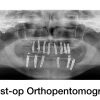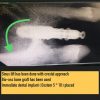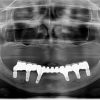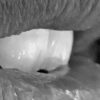Why Do I Need To Undergo Professional Dental Cleaning
Regular visits to your dentist and Hygienist will ensure that your teeth last as long as possible. It is important to note that gum disease is very common, affecting people of all ages. Unfortunately gum disease causes damage to the bone supporting teeth and this process eventually causes the teeth to become mobile and eventually ‘fall out’ Gum disease ( periodontal disease) is the most common cause of tooth loss in adults. The good news is that gum disease can be treated by a dentist or hygienist and if treated in the early stages it’s effects can be reversed.
What Causes Gum Disease
Plaque, a mixture of food, bacteria and bacterial waste products, builds up on your teeth within minutes or hours after eating. When plaque is left on your teeth, it irritates the gums (gingival). This early stage of gum disease is called gingivitis.
If gingivitis is not treated, the gums begin to pull away from your teeth, leaving a little pocket around the tooth. This pocket traps plaque that can’t be reached with tooth brushing. Plaque that is not removed hardens to tartar (calculus). Plaque and tartar build-up, causing further irritation.
The irritation caused by plaque and tartar gradually starts to affect the bone structures around your teeth. As time goes on, the pockets get deeper and more difficult to clean, and the gum and bone recede, so that some of the root may be visible. This can make your teeth wobbly. This stage is called chronic (long-term) periodontists. After years, the teeth may fall out, or they may need to be taken out by a dentist
What Makes Gum Disease More Likely
Gum disease happens when plaque builds up because the teeth are not cleaned properly. This is more likely to happen if you find it difficult to clean your teeth properly, for example, if you wear braces, have dentures or have irregularities in your teeth that you can’t reach with a toothbrush. Fillings, crowns, bridges or missing teeth can make tooth brushing more difficult and make one more susceptible to gum disease.
What Treatment is Available
In order to diagnose periodontal disease it is important that you visit your dentist regularly. Your dentist should carry out a periodontal examination to assess the health status of your gums. Using a periodontal probe the dentist will check the depths of the tissues around the natural teeth (periodontal pockets). This will usually give an indication as to the severity of the periodontal problem. The deeper the pocket the more difficult it will be to clean adequately.
Interesting Facts about Gum Disease
- Gum disease is extremely common and affects 3 out of every 4 adults over the age of 35 in INDIA.
- The main symptoms of gum disease are sore, bleeding gums during tooth brushing.
- Gum disease, not tooth decay, is the biggest cause of tooth loss.
- Only 60% of women in the INDIA aged 50 can claim to have all of their own teeth.
- Gum disease isn’t just something that happens later in life, more than half of teenagers have some form of gum disease.
- Smoking causes 50% of all cases of gum disease in the INDIA.
Dental Checkups
Most people know the importance of getting regular dental checkups, yet many people still neglect their dental health. You may resist a checkup due to dental phobia, lack of time, concern about being lectured for poor oral hygiene or any number of reasons.
When you avoid regular checkups, you may find yourself at the dentist only when dental emergencies come up. Because the treatments for dental emergencies can be painful, this may exacerbate issues like dental phobia or make you feel even more self-conscious about your oral hygiene. The best way to avoid these painful and embarrassing dental emergencies, however, is to take control of your oral health and see your dentist for regular checkups.
Most dentists recommend you receive a dental check up every six months. In some cases, however, your dentist may recommend more frequent checkups; for instance, if you suffer from advanced diabetes. Consult with your dentist to determine exactly how often you should visit.
Some of The Advantages of Regular Dental Checkups are –
- Regular professional cleanings keep your teeth and gums in the best condition possible.
- Preventing infection and spotting problems early can reduce the need for cost intervention in the future.
- Your dentist can check for any signs of oral cancer; early detection can save your life.
- Your dentist can check your brushing and flossing techniques and assure you are doing everything properly.
- You can ask your dentist any questions you may have about maintaining oral health and dealing with dental emergencies.
- If any changes in your oral health are noticed, your dentist can help you formulate an effective oral hygiene strategy to prevent additional problems.
- Proper professional cleanings help reduce the occurrence of bad breath.
What are Tooth Extractions Needed?
One of the most frequently performed dental procedures is tooth extraction. In fact, tooth extractions often serve as the foundation of comprehensive dental treatment solutions. Therefore, it is important to understand why tooth extraction is considered an extremely important procedure in dental treatment.
Some Common Reasons Why Dentists Perform Tooth Extractions
Tooth Damage
From broken teeth to gum disease, many forms of tooth damage require tooth extraction. In case, the patient has severely decayed or cracked teeth, tooth extraction may become the sole option to fix the damage permanently.
Dentists may also consider tooth extraction as an alternative to other treatment options that are more expensive or offer short-term relief. For instance, when the teeth aren’t suitable for root canal treatment, tooth extraction may be needed. Moreover, patients with severe cases of gum disease also need tooth extraction, especially when the bones are damaged and the teeth become extremely loose.
Tooth Mal-positioning or Non-Functioning
Mal-positioning is yet another reason why teeth may require extraction. A patient with poorly aligned teeth may opt for tooth extraction. For instance, the dentist may extract a patient’s third molars to end cheek irritation that results from the rubbing of molars.
There are other instances when extraction is required for removing non-functional teeth, which have little or no purpose in the mouth but increase the chances of developing other dental problems. In some cases, patients develop third molars but there aren’t any matching teeth for biting against. Because it is hard to properly clean and thoroughly brush this particular mouth region, the third molars along with neighboring molars have greater chances of becoming decayed. And this is when; tooth extraction seems to be the only dental solution to end the problem.
Orthodontic Issues
This is the third reason why tooth extractions are typically needed. When devising an orthodontic treatment plan, dentists may suggest increasing the jaw length by extracting strategically-located teeth.
It is important to understand that when teeth are removed or extracted, the neighboring teeth have a tendency to drift into the empty space. And if the dentist doesn’t devise an effective strategy for tooth extraction, there can be dramatic alignment changes that can significantly impact the patient’s overall dental health.
Sometimes, improper tooth extraction can even result in chewing problems or issues with jaw-joint functioning. Furthermore, the spaces between shifted teeth can start trapping food particles and debris, thereby increasing the chances of developing gum disease and tooth decay.
According to dental experts, tooth extraction isn’t always the best and most affordable dental solution. Depending on the nature of tooth damage and other factors associated with the patient’s dental health, a proper dental treatment plan should be devised to address any consequences or problems that the extraction may follow. Therefore, it is extremely important to consult an experienced and qualified dentist to avoid any future problems with tooth extraction.
What is Wisdom Tooth Extraction?
Wisdom tooth extraction is characterized by a surgical procedure where one wisdom tooth or more than one wisdom teeth are removed. The four permanent teeth at your mouth’s top and bottom back corners are known as wisdom teeth.
Normally, the extraction of a wisdom tooth is done when there isn’t enough room for the tooth to grow. This is known as an impacted wisdom tooth, which can cause infection and pain as well as other oral problems. Removing wisdom teeth is usually performed by a specially trained dental professional. According to an experienced dentist at Brighton Implant Clinic, a wisdom tooth extraction should be performed as a prevention against future problems even if impacted teeth are not leading to problems.
When Does a Dentist Perform Wisdom Tooth Extraction?
Extraction of a wisdom tooth is performed if impacted teeth cause problems such as:
- Pain
- Damage to the adjacent tooth
- Wisdom tooth infection
- Development of cyst around the tooth
- Complications with orthodontic procedures
- Damage to the surrounding bone
Are there any risks associated with wisdom tooth extraction?
Usually, removing wisdom teeth does not cause long-term complications. Here are some problems that may occur:
- Socket infection from trapped food particles or bacteria
- Dry socket
- Damage to the nerves, leading to altered sensation in the tongue, lower lip or chin
- No surgery is needed, hence its simpler for both patient and dentist than the other alternatives






